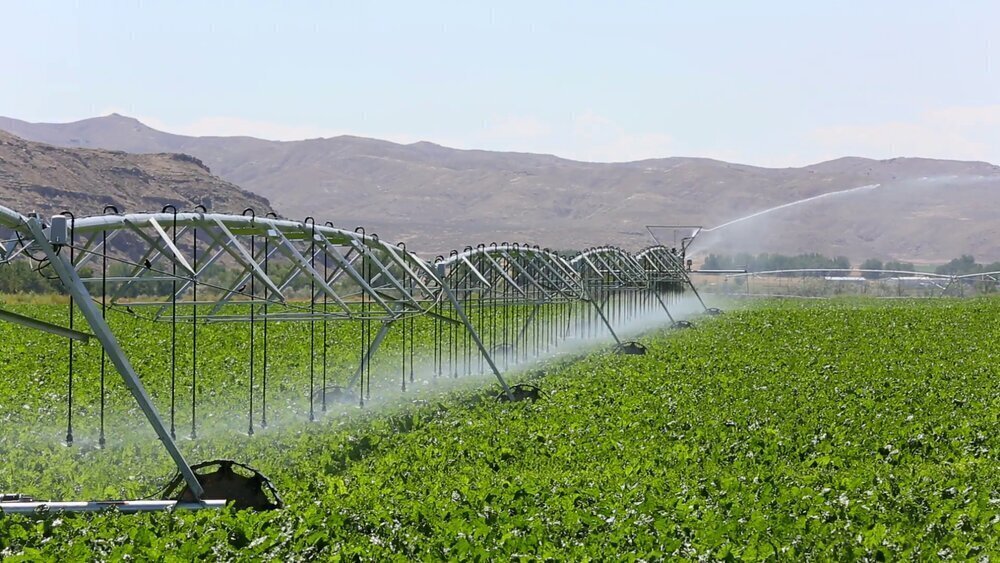Modern irrigation development a vital necessity

TEHRAN- Recent droughts in Iran have raised the need to use new methods of irrigation. This issue is especially important in rural areas.
It is necessary to develop modern methods of irrigation and replace them instead of traditional irrigation by farmers due to the lack of water in most areas.
Considering the current situation when the country is facing water challenges, the Agriculture Ministry is implementing a new irrigation systems development plan.
Back in May, the ministry’s project manager for the mentioned development plan said that the plan for developing modern irrigation systems has witnessed a significant leap in the past three years, as it is most effective in increasing the efficiency of water and soil resources and strengthening the country's food security.
Over the past three years, each year, an average of 150,000 hectares of farmlands have been equipped with modern irrigation systems, and we have witnessed a 300 percent jump, Abbas Zare stated.
The official expressed hope that considering the budget allocation for the provinces at the beginning of the current Iranian calendar year (began on March 20), the ministry would be able to develop the project in terms of both quantity and quality.
And, in mid-September, he said that following the ministry’s new irrigation systems development plan, 174,000 hectares of farmlands have been equipped with modern irrigation systems in the current Iranian year.
According to Zare, the purpose of implementing the plan of modern irrigation systems is to increase the productivity and sustainability of water and soil resources in the country to ensure the sustainable production of agricultural products.
“Following the support of the government for this project, of 8.7 million hectares of the country’s total irrigated lands, so far about 2.4 million hectares have been equipped with modern systems,” he said at the time.
The official noted that in the current year, nearly 16 trillion rials (about $55 million) has been allocated from the annual budget and the National Development Fund (NDF) for the development of various irrigation methods.
With the mentioned funding, so far, the irrigation systems are under construction for 130,000 hectares, while for 44,000 hectares the systems have been put into operation, he explained.
According to the official, the implementation of this plan is going to increase the irrigation efficiency of the mentioned farmlands to 44 percent which will increase the production capacity of agricultural products by 30 percent.
Although the government seems to pursue the implementation of this plan seriously, more support and incentives are needed in this due.
The implementation of the modern irrigation plan should be accelerated to prevent water wastage and promote optimal consumption in the country, and the Ministry of Agriculture should pay special attention to this field.
Villages play an essential role in food production and security, and supporting villagers by developing services and providing facilities is the basis of work.
As stated last week by an economics professor, “In order for farmers to be able to benefit from modern irrigation methods when planting crops, it is necessary to have appropriate tools, equipment and technology. However, despite the government's approval of 15 percent investment by farmers and 85 percent government support, it is not still possible for the farmers, while the necessary equipment should be provided to them in installments and other simple methods.”
In order to preserve the surface and underground water resources of the country, it is necessary to direct the farmers towards new irrigation methods, Abdol-Majid Sheykhi told IRNA.
While criticizing the model of submerged cultivation that is now common in the country, he said: “This method of cultivation is a wrong method for a land that has faced water shortages throughout history and has a long history of drought, and it is inefficient; and in order to preserve the surface and underground water resources, modern methods of irrigation such as strip and drip should be used.”
The professor said the illegal drilling of agricultural wells and the overexploitation of underground water resources, which are constantly increasing, cause irreparable damage to the country's water resources.
Referring to the heavy consequences of excessive exploitation of the country's water resources, especially in the agricultural sector, Sheykhi suggested that a coordination headquarters be formed between the ministries of energy and agriculture to design a pattern of cultivation and irrigation based on the climate of Iran.
Emphasizing the need for governments to pay attention to the issue of water and water resources, he considered the drought as a natural and historical issue in the country, and that careful planning and proper policy-making should be done to face it.
Leave a Comment